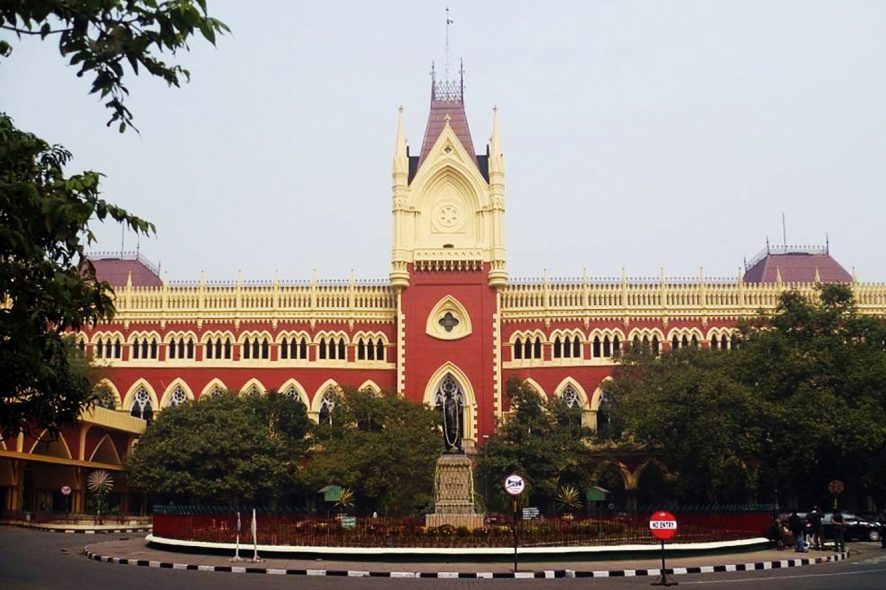“[Sexual harassment] can be perpetrated by the members of any gender, even inter se.”
Calcutta High Court: Sabyasachi Bhattacharyya, J. held that a complaint under the Sexual Harassment of Women at Workplace (Prevention, Prohibition and Redressal) Act, 2013 [“POSH Act”], is maintainable even against “a person” belonging to the same gender as that of the complainant. In other words, a complaint under the POSH Act is maintainable against women.
Issue
In the present petition, the petitioner contended that the respondent authorities acted without jurisdiction in entertaining a complaint on alleged sexual harassment against her, despite the fact that both, the petitioner and the complainant, are of the same gender.
Arguments
Petitioner
The petitioner stressed that the allegations of the complainant revolved around alleged vilifying and defaming in public. It was submitted that the act as alleged, could not fall within the purview of “sexual harassment” as contemplated in the POSH Act. She placed particular reliance on the definition of “sexual harassment” in Section 2(n) of the POSH Act and sought to impress upon the Court that the acts contemplated therein have no nexus with the present complaint.
It was next submitted that, as per Section 19(h) of the POSH Act, an employer shall cause to initiate action under IPC or any other law for the time being in force, against the perpetrator. It was argued that such an action, as envisaged under IPC, only pertains to a man being involved in the offence, which ingredient has to be factored in while appreciating the connotation of “sexual harassment” under the POSH Act.
It was submitted that since the Vishakha judgment [Vishakha v. State of Rajasthan, (1997) 6 SCC 241] was the genesis of the POSH Act, the concept of the POSH Act has to be read and interpreted in the light of the said judgment. It was argued that the question of gender equality acquires primacy in deciding whether a complaint falls within the periphery of the POSH Act. In the present case, since the gender of the complainant and the respondent (petitioner herein) is the same, the question of the POSH Act being invoked does not arise.
Complainant
The complainant made reference to the University Grants Commission (Prevention, Prohibition and Redressal of Sexual Harassment of Women Employees and Students in Higher Educational Institutions) Regulations, 2015 and submitted that the said Regulations are broad enough to encompass respondents of all genders, implicitly meaning that the gender of the complainant and the respondents can very well be the same in order to attract the rigours of the Regulations, which govern the present parties as well. By placing particular reliance on Regulation 8(2), it was argued that the expression “the respondents shall file his/her reply” has been used therein, thereby bringing within its purview respondents of both genders. This, read with the definition of “respondent” in Section 2(m) of the POSH Act, which contemplates “a person” as a respondent, indicates clearly that same gender allegations can also be entertained under the POSH Act.
Analysis
The High Court, stated at the outset, that a cursory glance at Section 2(m) of the POSH Act shows that the term “respondent” brings within its fold “a person”, thereby including persons of all genders.
The Court was of the opinion that although there was substance in the submission of the petitioner that the said expression has to be read in conjunction with the rest of the statue as a whole, there is nothing in Section 9 of the POSH Act [which has been referred to in Section 2(m)] to preclude a same-gender complaint under the POSH Act.
“Although it might seem a bit odd at the first blush that people of the same gender complain of sexual harassment against each other, it is not improbable, particularly in the context of the dynamic mode which the Indian society is adopting currently, even debating the issue as to whether same-gender marriages may be legalized.”
It was also held that the definition of “sexual harassment” in Section 2(n) cannot be a static concept but has to be interpreted against the backdrop of the social perspective. Sexual harassment, as contemplated in the POSH Act, thus, has to pertain to the dignity of a person, which relates to her/his gender and sexuality; which does not mean that any person of the same gender cannot hurt the modesty or dignity as envisaged by the POSH Act.
“A person of any gender may feel threatened and sexually harassed when her/his modesty or dignity as a member of the said gender is offended by any of the acts, as contemplated in Section 2(n), irrespective of the sexuality and gender of the perpetrator of the act.”
The Court further held that if sub-section (2) of Section 3 [Prevention of Sexual Harassment] is looked into, it is seen that the acts contemplated therein can be perpetrated by the members of any gender, even inter se.
Decision
In such view of the matter, the High Court held that the act alleged by the complainant to have been perpetrated by the petitioner, as evident from her complaint was maintainable under the POSH Act. Hence, the complaint cannot be turned down at the outset.
It was however clarified that the merits of the allegations levelled by complainant against the petitioner have not been gone into in any manner by the court. And it will be open to the appropriate authorities to decide the matter independently, on its own merits. [Malabika Bhattacharjee v. Vivekananda College, WPA 9141 of 2020, dated 27-11-2020]






